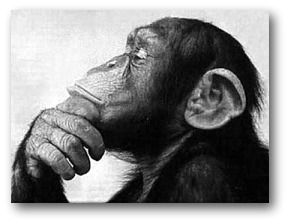Critical Thinking: A Critical Component to Career Self Assessment
 In the context of career planning and development, self assessment serves as the starting point to determine – or confirm – what is important to you in terms of your identity and your priorities.
In the context of career planning and development, self assessment serves as the starting point to determine – or confirm – what is important to you in terms of your identity and your priorities.
In many career planning models, the self assessment stage is then followed by the exploration-and-research and decision-making stages.
Applying critical thinking is important throughout the career planning stages but especially so during self assessment, as you focus on yourself and seek to clarify your top interests, personality style, skills, beliefs, motivators and the like. Doing so improves your chances of making the best decisions in general, as well as career-related decisions in particular.
Consider the following questions:
- What are your favorite kinds of books, magazines and websites?
- What is your dream or fantasy job?
- What are your favorite hobbies?
- What types of classes have you really enjoyed taking, and which classes have you really disliked?
- What do you most look forward to doing in your free time?
- If you had unlimited resources, what would you be doing?
Applying a critical lens to these questions can provide more insightful information about yourself:
- Why are you most interested in those particular books, magazines, and websites?
- Why do you choose that particular dream or fantasy job? Have you actually thought about whether your dream or fantasy job could be a reality?
- Why is that hobby your favorite one?
- Why do you really like or really dislike certain classes?
- Is what you most look forward to doing in your free time the same activity as your hobby?
- Have you thought about the connection between your response to what you would be doing if you had unlimited resources and the possibility of pursuing a career path that would directly or even indirectly incorporate your response?
Of course, not all questions that we encounter in life need to be answered so critically. But when engaging in self assessment, I strongly believe that the more deeply you think about yourself, the better you get to know yourself; and the better you know yourself, the better your chances of making the best decisions.